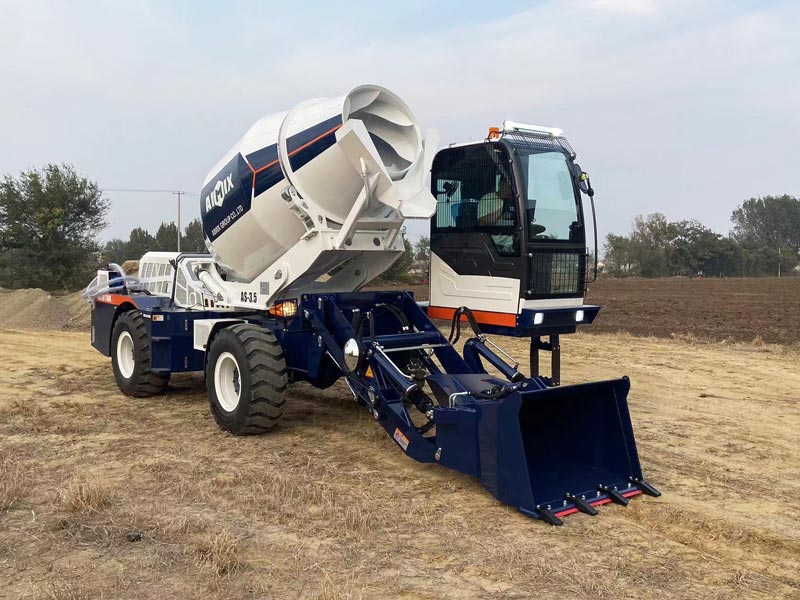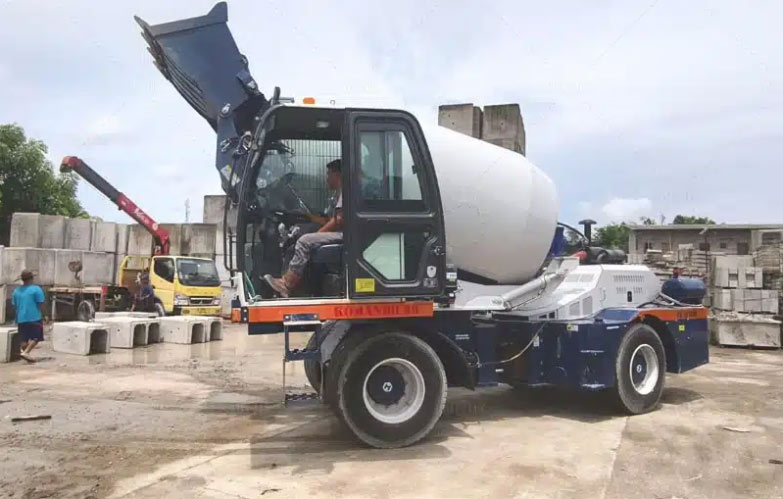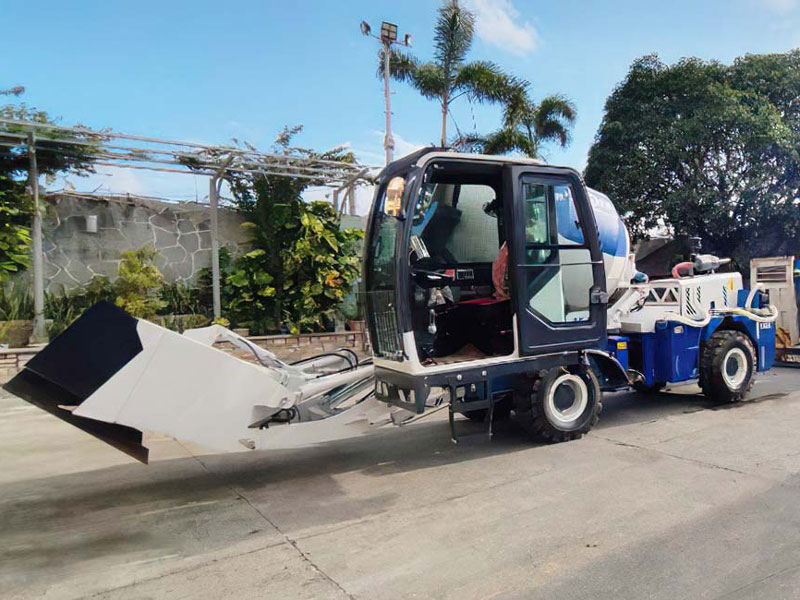Working on remote construction projects comes with unique challenges. One major challenge is transporting concrete to the job site. Delivery trucks may not reach rough or isolated areas. That’s why choosing the right concrete mixer is essential. For remote projects, you need a mixer that can handle both mixing and transit. In this blog, we discuss how to choose the right mixer for concrete transit in remote projects. We focus on options like the concrete mixer self loading, concrete mixer for sale, concrete transit mixer, and hydraulic concrete mixer machine. These machines offer practical solutions for tough locations.

Understand the Challenges of Remote Concrete Transit
Remote projects are often far from cities or main roads. The terrain may include hills, forests, or uneven ground. Delivery trucks can’t always access these areas. Weather and distance also affect material supply.
That’s why bringing the mixing process to the site is often necessary. You need a mixer that can mix and move concrete easily. The right machine must handle rough conditions and provide consistent results.
Choosing the wrong mixer can cause delays, extra costs, and poor concrete quality.
Benefits of Using Mobile Mixers in Remote Areas
Mobile mixers help solve many problems in remote locations. They can be driven directly to the job site. This removes the need for long-distance concrete transport. These mixers also allow for small batch mixing based on real-time needs.
Mixing on-site ensures the concrete is fresh and usable immediately. It also reduces waste and improves project efficiency. For remote work, having a reliable mobile mixer is often the best solution.
It gives you control over timing, quality, and supply.

What to Look for in a Concrete Mixer for Remote Transit
When choosing a mixer, consider its ability to handle rough terrain. Look for strong tires, durable frames, and good engine power. The mixer should also be easy to operate with minimal setup.
Fuel efficiency and water access are also important. Choose a model that fits your team size and project scale. Think about how far you need to move the mixer and how often.
The right features will make remote work safer and more efficient.
Using a Concrete Mixer Self Loading in Remote Projects
A concrete mixer self loading is a great option for remote areas. It can load, mix, and discharge concrete without extra help. The built-in scoop arm picks up materials like sand, cement, and aggregates.
This type of mixer is compact and easy to move. It works well on rough or narrow paths where trucks can’t go. The self-loading feature saves time and labor. It also ensures consistent mixing quality.
For small to medium remote jobs, it offers great value and performance.

Considering a Concrete Transit Mixer for Remote Use
A concrete transit mixer is designed to carry mixed concrete from one place to another. However, it is usually used with a central batching plant. In remote areas, you may need to batch the concrete at the site first.
If you have access to a batching plant nearby, a concrete transit mixer can help transport it. Make sure the drum can keep the concrete fresh during the trip. Look for models with good insulation and rotation control.
This option works best when mixing is done off-site.
Exploring Hydraulic Concrete Mixer Machines
A hydraulic concrete mixer machine uses hydraulic power for better drum control. This provides smoother operation and more efficient mixing. Hydraulic models are often more durable and easier to maintain.
They are suitable for tough environments and heavy use. These mixers can handle different material types and mixing speeds. They are a good investment for long-term remote projects.
Hydraulic machines offer reliability and better performance over time.
Choosing Between New and Used Mixers
When buying a mixer, decide whether to purchase new or used. New mixers come with warranties and the latest features. Used mixers are more affordable but may need repairs.
Check the condition of used machines carefully. Look at the engine, tires, drum, and controls. Consider your budget and how long you need the mixer.
Both options can work well if chosen with care.
Conclusion: Matching the Mixer to Your Remote Needs
Choosing the right concrete mixer for concrete transit in remote projects requires careful thought. Consider the terrain, batch size, and mixing needs. Options like the concrete mixer self loading, concrete mixer for sale, concrete transit mixer, and hydraulic concrete mixer machine all have different strengths.
The right mixer will improve efficiency, save costs, and ensure quality concrete. For remote work, mobility, durability, and ease of use are key factors. Selecting the best option will help your project run smoothly.
